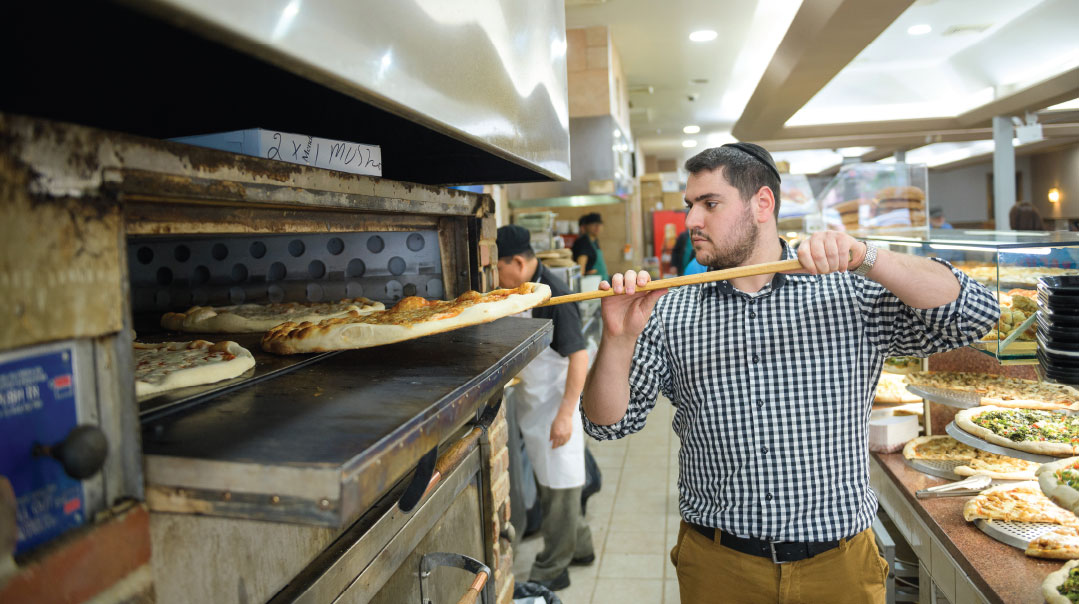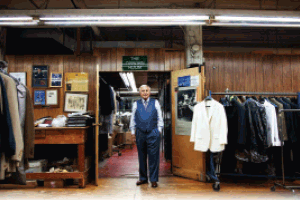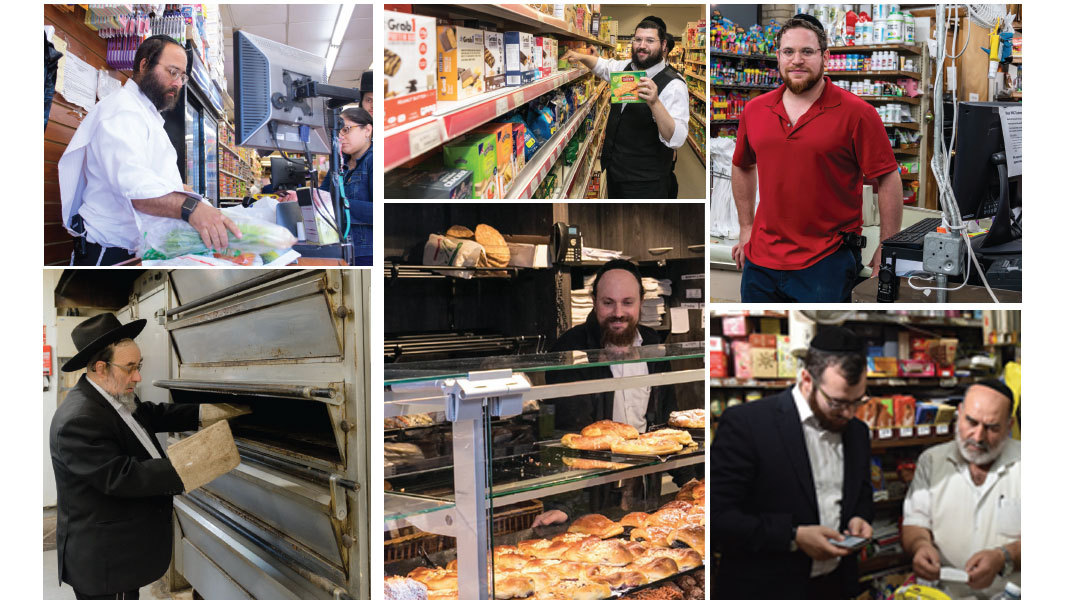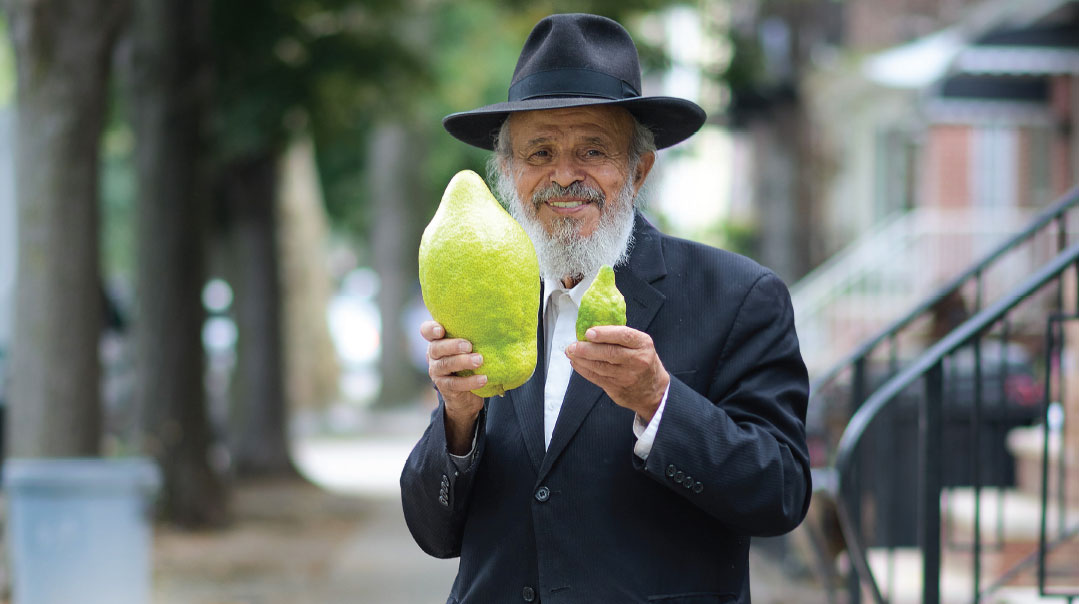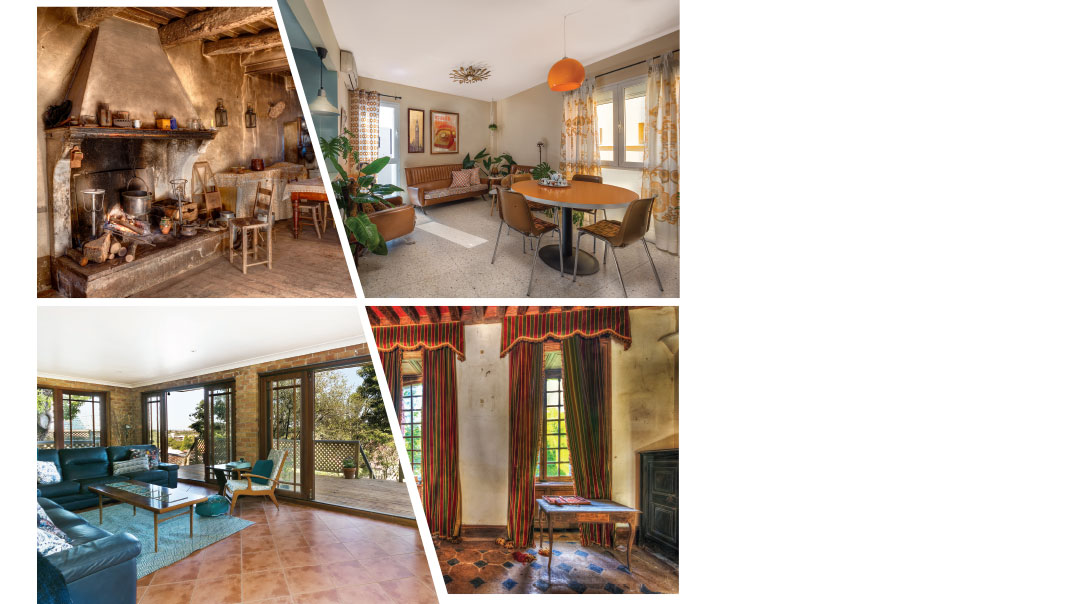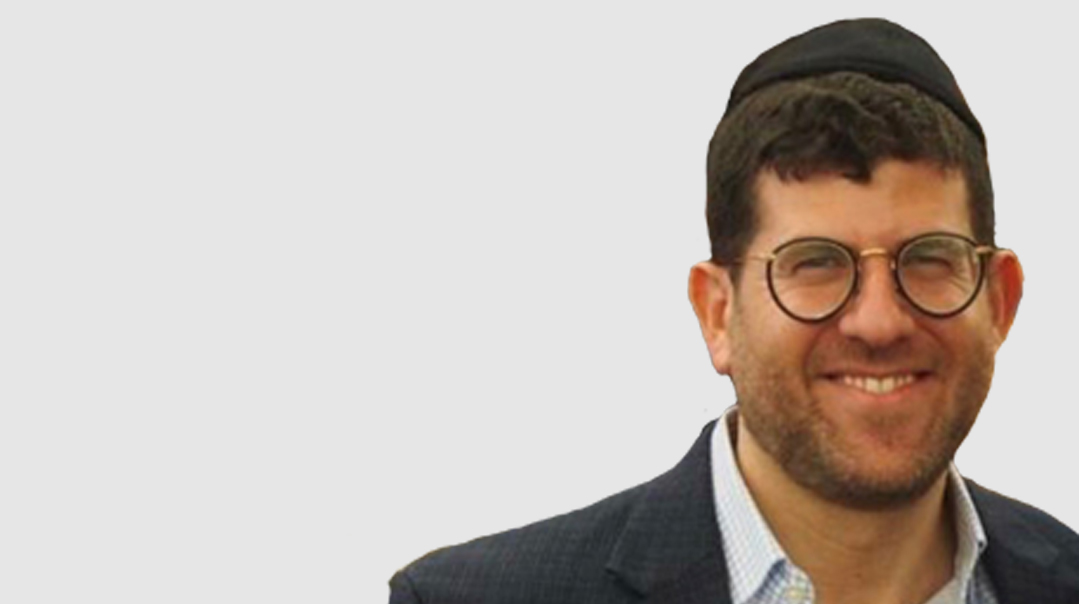Hearts Broken Open
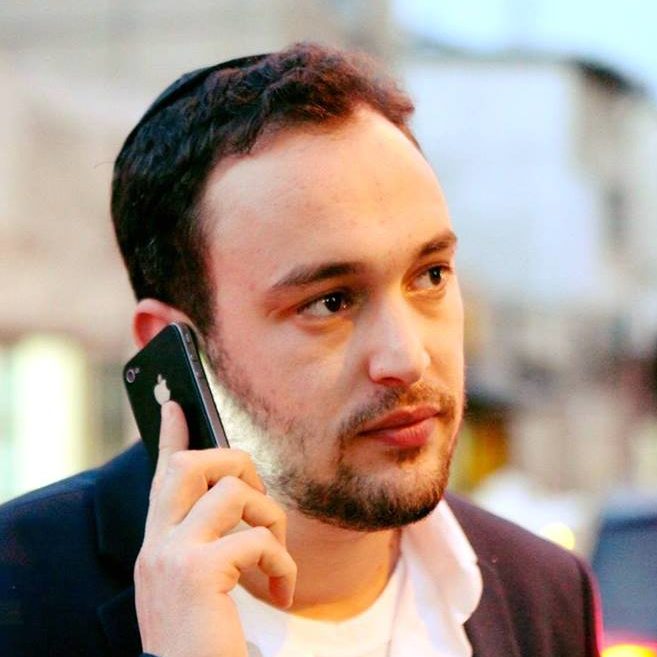
When Motty Steinmetz starts to sing, you feel your heart break. It isn't just his beautiful vocal styling or unusual range, impressive as they may be. It's the genuine emotion behind every word. His voice holds a velvet vulnerability that reaches deep inside listeners; he conveys a sweet desperation and at times an utter brokenness that transforms simple songs into melodic prayers.
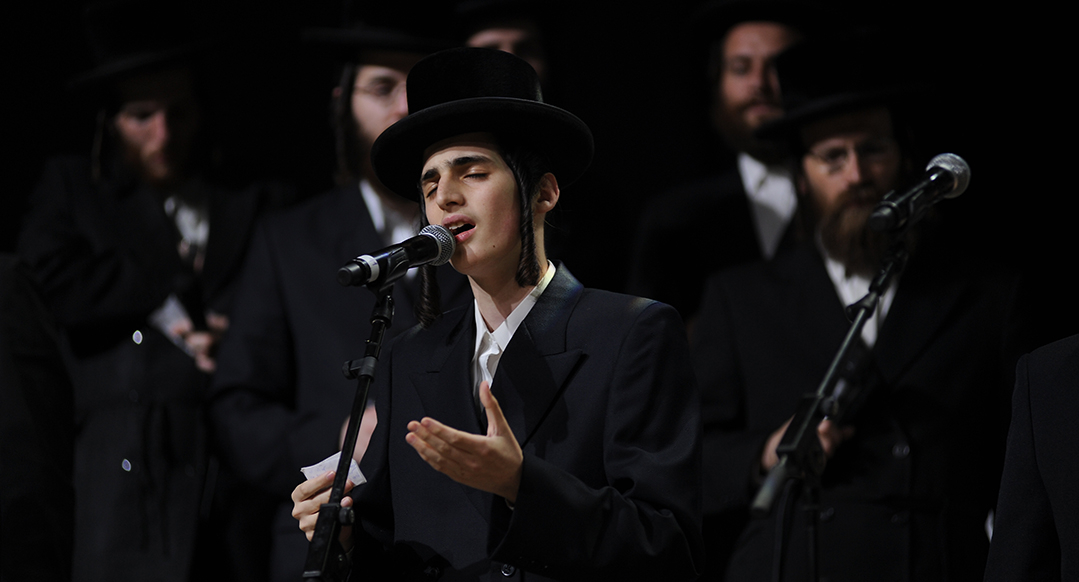
Photos:Yaakov Liderman
How did Motty Steinmetz, the musical phenomenon whose hits “Eitz Chaim,” “V’Yiyu Rachamecha,” “V’Sei’areiv,” and more can be heard at every simchah, transition from what he describes as that “very average childhood” to starring at sold-out concerts on some of the biggest stages around the world?
In his own words, he traces the journey….
On my First Solo
When I was a kid growing up in Kiryat Vizhnitz in Bnei Brak, I loved to sing — but never considered myself exceptionally talented. My first musical memory goes back to second grade, when I heard a Purim song at my cousin’s bar mitzvah that I liked. The next day at school I sang the song in class along with the rebbi. I didn’t think that my singing was anything special — but the other kids seemed to perk up when they heard me. When their bar mitzvahs rolled around, those same classmates invited me to sing solo on their special nights. I started to realize that my ordinary voice might not be so ordinary after all.
On My Musical Mentor
When I was 14, my grandfather moved from Antwerp to Israel. For the next two years, I spent my days in yeshivah and my nights at my grandfather’s bedside. He was a living, breathing musical archive and he taught me his entire repertoire of old Vizhnitz melodies. The truth is that nobody sings those songs anymore — but I know them and I think that having them inside me makes a difference for the songs I do sing.
On Making them Cry
As my friends started getting married, I would entertain the crowds at the weddings with typical grammen. Then I discovered a specialty that was much rarer than grammen. The kabbalas panim that Vizhnitz does before the chuppah is a very special event, very emotional, with undertones of the Yamim Noraim davening and atmosphere — but there are some chassanim who have a hard time expressing their feelings. That became my job, to break down those barriers and get the tears flowing. When I sang, I knew I was helping the chassan connect with the most important day of his life. I’d see tears trickle down his cheek, little by little, then more and more… I’d usually cry too.
On Waiting it out
There came a point when I wanted to take professional voice lessons, but where I grew up, nobody did that. And in any case, my parents couldn’t allow themselves that kind of thing from a financial standpoint. So I let it go, but I kept believing. I told myself that I would keep singing, and even if it weren’t as professional as it could be, I could still enjoy using my voice, on my own, just for me.
Yes, I aspired to more, but I didn’t think it would happen so quickly. If you had told me three years ago that when I came home to Kiryat Vizhnitz I would have to avoid crowds of people trying to chase me down, I would have said you’re crazy. But HaKadosh Baruch Hu has His own schedule.
On My Invitation to Sing
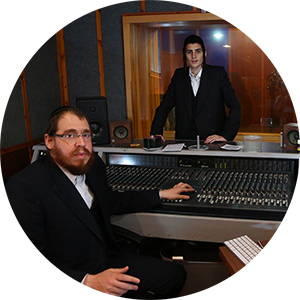
I still remember how thrilled I was when I was asked to join the Vizhnitz Choir. My father’s been a member of the choir for years, and when I was little I used to tag along with him, standing near him and trying to sing along. I remember the monthly Rosh Chodesh seudos for members of the kehillah by the Rebbe ztz”l, when I’d get to go with my father into the Rebbe’s study and get a candy, a little pat, and feel so excited. Being invited to join the choir itself was a moment I’ll never forget.
During one of those performances, Ruvi Banet — son of the Seret-Vizhnitz “court composer” Rabbi Chaim Banet, and a famous arranger and producer in his own right — heard me sing. Right afterward he came up to me and asked me to come sing at an upcoming dinner for Seret-Vizhnitz in Haifa. Since then, he’s been like a second father to me — he brought me into the music world.
On the Rebbe's Tears
The first Purim after the Rebbe ztz”l was niftar was also my first performance for a gathering of the entire chassidus. I stood by the dais and sang Mordechai Ben David’s “Habeit Mi’Shamayim.” Songs like those I sing with my eyes closed, but between stanzas I peeked at the present Rebbe and saw him wiping away tears. I don’t think I ever felt that way before. Then I looked around and saw people I had known since childhood, stern men whom I never would have imagined crying — all in tears.
The next morning my parents had a message on their answering machine, a refined voice in a tightly controlled baritone that we recognized as one of our chassidus’s leading mashpiim. “I was there last night,” he said. “I want to tell you that I have never been so moved before. I also want to thank you and ask you to continue investing in the great gift you have received from HaKadosh Baruch Hu. This son of yours possesses something incredible.”
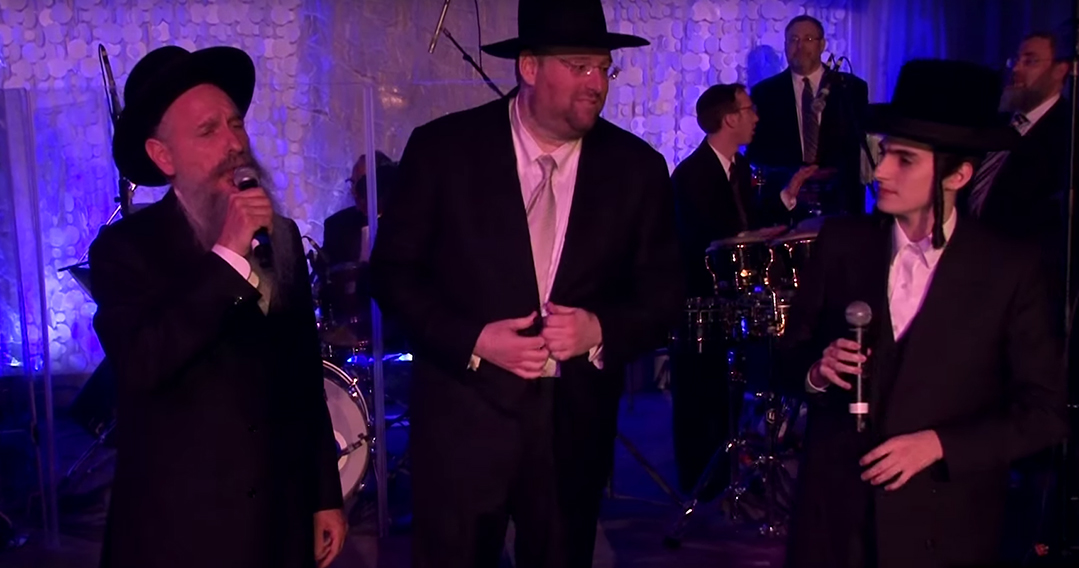
On the Public Persona
Sometimes I just can’t make sense of how this happened so fast, how I became this public figure whose voice and face are recognized wherever I go. I get letters from cancer patients who say my singing helps them forget they’re sick. Then there’s the Chabad shaliach in Oslo, whose mesirus nefesh for the klal means getting by on very little by way of frum company — he tells me that my music gives him the strength to carry on.
The truth is that I don’t have much privacy. I have to hurry to shul so people won’t stop me on the way with their questions, comments, suggestions.… But when someone in Flatbush walks up to me and says the kippah on his head is there because of my singing, who am I to argue?
On Sticky Situations
There’s a downside to being such a public person — people know that I get flown around the world to sing at events and simchahs, and they try to use me to reach the wealthy and powerful. I recently got a letter from somebody that quoted Megillas Esther, “And who knows whether it was for this moment that you came to royalty?” He wanted me to help him reach some gvir or another.
On the one hand, I want to help, but on the other hand, people invite me to their homes or their simchahs to sing, not to solicit donations. It can get very uncomfortable.
On Sounding the Soul
I’m often stopped by parents who wonder whether to develop their son’s musical talents. I understand their hesitance — what if the kid becomes really successful and can’t deal with it? Because, in all honesty, the music world has a lot of not-so-nice places. But if a person has talent and doesn’t express it, there’s a danger in that too. A child with that kind of gift needs to let it out.
A person who has talent and doesn’t express it lives with a constant, nagging sense of loss. When I was a teenager, I walked around with that sense. At about 18, 19, I told myself that’s it, I don’t have a chance — at most I’d be a wedding singer. Then all this happened. I received incredible siyata d’Shmaya and the dream came true.
On my Two Bastions
When suddenly my world became bigger and glitzier than anything I knew from my sheltered chassidish upbringing, I drew on tools from two sources.
The first is the message my parents constantly repeated: “We’re in Olam Hazeh to serve. That’s what a Jew comes to the world for.” My father never related to my talent and my siblings’ talents as anything special. He told us it’s a gift from Hashem and not something we made for ourselves, so there’s no reason to feel any gaavah. I just try to put what I learned at home into practice, and it keeps me sane in a very big, very challenging world.
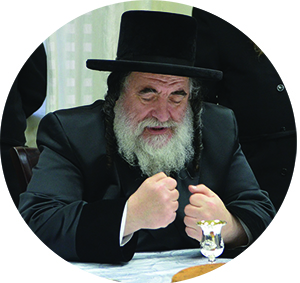
Then there’s Vizhnitz. I’m lucky that in Vizhnitz you’re not allowed to talk during davening, and there are people in charge of enforcing that, so at least when I come to shul I can focus on my davening — no questions, no appeals, no curious kids. And beyond the quiet and the privacy, there’s the reality check of a community that prizes Torah learning and avodah much more than any hit song.
But it’s so much more than that. Vizhnitz put the heart into my voice. All those years I spent standing at the tish near the Rebbe, crying and singing, they helped form the way I approach music and the way I sing. I wouldn’t miss Yamim Noraim davening with Vizhnitz for anything or any price. I don’t know if I can put into words exactly what those songs do to me. I guess you can say that when I sing Vizhnitz songs, my neshamah screams and cries.
(Originally Featured in Mishpacha Issue 578)
Oops! We could not locate your form.






